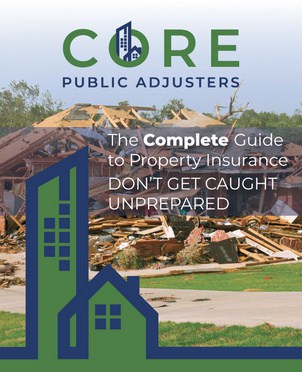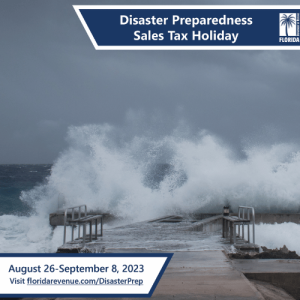Each year, especially before hurricane season, you should review your insurance policy to understand what it does and doesn’t cover, and to ensure you’re clear on the insurance jargon within it. Below are insurance terms you may see in your insurance policy, and in paperwork related to insurance claims.
Insurance Policy Jargon You Should Know
- Actual Cash Value – An amount equivalent to the fair market value of the damaged property immediately preceding the loss.
- Appraisal – Process that determines the value of property, or the extent of damage, usually performed by an impartial expert. Sometimes appraisal is a useful process to settle claims. Sometimes your insurance company may request an appraisal as a tactic to pay less.
- Claim – Notice to your insurance company that under the terms of a policy, a loss may be covered.
- Claimant – You. Any person who asserts right of recovery.
- Claim Examiner – A person representing the insurance company responsible for investigating and settling a claim.
- Competitive Estimate – A term used when an insurance company requests that you submit multiple repair estimates for consideration. Your insurance company may request competitive estimates after settlement and before they pay you for repairs.
- Depreciation – A decrease in value due to age, wear, and tear.
- Declarations – The part of your policy that includes your name and address; the property that is being insured, its location and description; the policy period; the amount of insurance coverage and the applicable premiums.
- Deductible – The amount of the loss which you are responsible to pay before benefits from the insurance company are payable.
- Endorsement (a.k.a Rider) – Amendment to an insurance policy used to add or delete coverage.
- Exclusion – Certain causes and conditions, listed in an insurance policy, which are not covered.
- Field Adjuster – An insurance adjuster who works primarily outside of an office and often meets personally with the public. Field adjusters can conduct face-to-face meetings, negotiations with claimants, scene investigations, and damage inspections. It is important that you have us interact with your field adjuster rather than you interacting directly, as anything you say may be held against you. Read why field adjusters may write you a lower-than-expected damage estimate.
- First Party – Term used to refer to an insured (you).
- Insured – The policyholder (you). The person(s) protected in case of a loss or claim. The person or entity listed on the policy declarations page.
- Insurer – The insurance company.
- Limits of Liability – The amount specified in your policy up to which the insurance company will protect you.
- Loss – Any measurable dollar cost of incurred property damage; or an event that causes damage to the property.
- Loss of Use – Compensation resulting from the inability to use property as the result of an insured event.
- Mortgagee – The lender that has a mortgage on the property. The mortgage includes a requirement that the lender be included as an “additional insured” on the policy so that most settlement checks include the lender on the check.
- Peril – The cause of a possible loss, for example, fire, theft, and hail.
- Personal Property – Property other than real estate, such as furniture or jewelry. We often say, it’s the contents that would fall if you were to turn it upside down and shake it.
- Policy – The written contract of insurance.
- Release – A legally binding contract originating from the insurance company stating that all obligations past, present or future, arising from a particular accident or occurrence have been fulfilled by them. We generally advise against signing a release unless under the advice of an attorney.
- Replacement Cost – The cost to repair or replace an insured item. Some insurance only pays the actual cash or market value of the item at the time of the loss, not what it would cost to fix or replace it.
- Replacement Value – The full cost to repair or replace the damaged property with no deduction for depreciation, subject to policy limits and contract provisions.
- Total Loss – Property that has sustained damage so extensive that repairing it is not reasonable.
Need Insurance Claim Help?
Call or text us, CORE Public Adjusters, if you have an insurance claim that’s been moving slower than molasses, or if you received a payout from your insurance provider that is less than you expected. Even if you were satisfied with your payout, damage may have been missed and lurking below the surface of what you can see. We provide comprehensive damage estimates and are experts at insurance policy interpretation and negotiation to get you more for our claim. Don’t delay, call or text us at (877) 411-2673.







